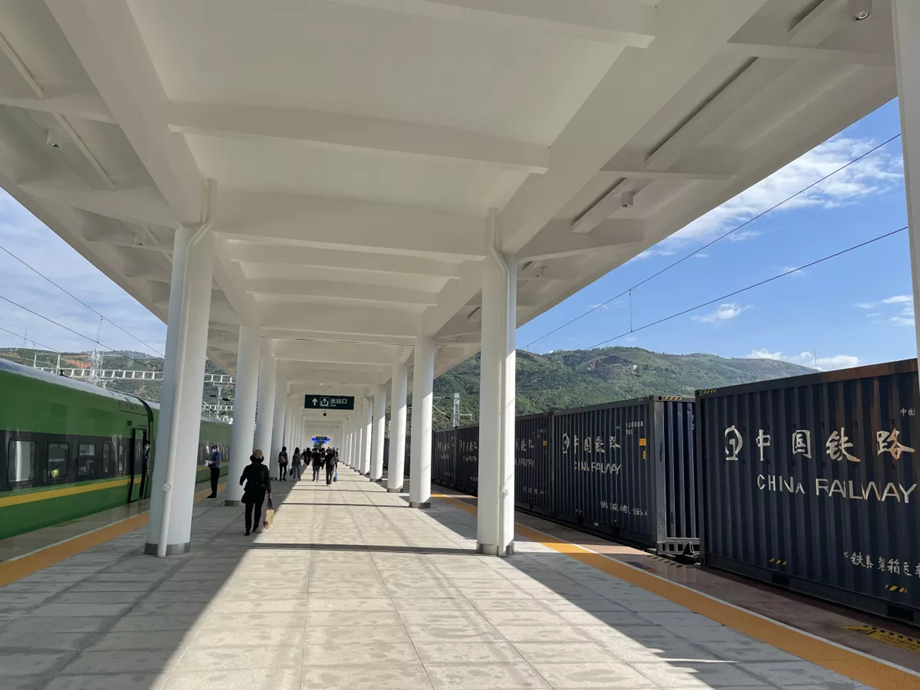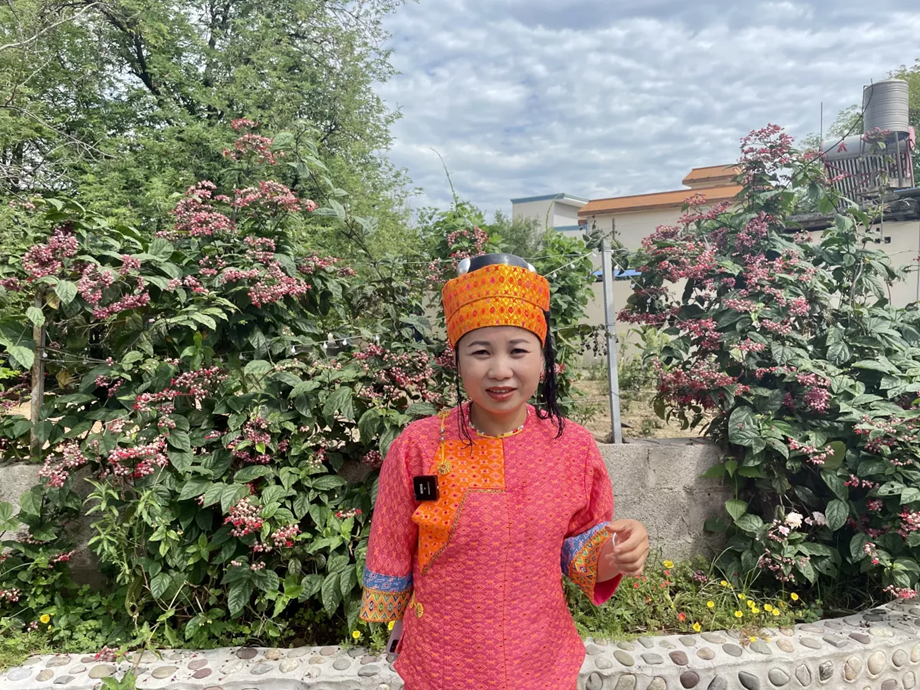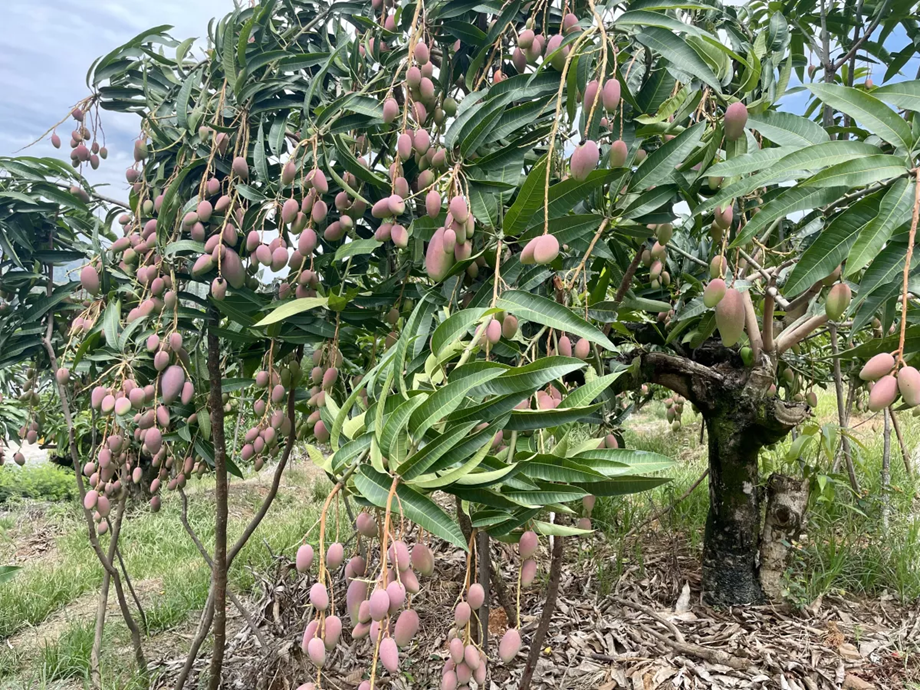China-Laos Railway Brings New Business Formats to Rural Areas
Connecting Kunming in China with Vientiane in Laos, the China-Laos Railway has made many places in Southwest China’s Yunnan Province bid farewell to the history of no trains. Nowadays, with the regular operation of the train, the China-Laos Railway provides convenient transportation and brings new business formats to rural areas.

Yuanjiang station on the China-Laos Railway. (iChongqing/ Chen Zhan)
Pride of the village
From Mengla County, Xishuangbanna Dai Autonomous Prefecture, the Dai girl Yi Bofeng is an attendant of the China-Laos Railway from the China Railway Kunming Group.
“There was no train in Mengla before, and villagers there had no idea about the train, much less what the train crew is working on,” Yi said.
“It took about 10 hours by bus to get to Kunming before, but now it only takes 5 hours by train,” she added. “And this is the most obvious benefit that the China-Laos Railway has brought to the village.”
With 25 ethnic groups, Yunnan is the province with the largest minority in China. And Xishuangbanna, an autonomous prefecture for Dai people in the extreme south of Yunnan Province, bordering both Myanmar and Laos, has become China’s mini-Thailand, attracting tourists looking for sunshine, water-splashing festivals, and jungle treks.
“My hometown has many special products, and they can be transported to Kunming on the rail line. Many national costumes can also be sold to more places,” Yi said. “I’m so glad to see the train come into our lives.”

Yi Bofeng, a Dai minority girl shared her story with the China-Laos Railway. (iChongqing/ Chen Zhan)
Rural revitalization
As part of the China-Laos Railway, the Yuxi-Mohan railway (also called Yumo railway) runs 503.9 kilometers from Yuxi to Mohan in Yunnan Province. Yuanjiang is one of the stations.
Characterized by the mango production, Yuanjiang County ushers in the fragrant mango season in late May every year. Merchants from all over the country rushed here to buy mangoes, and farmers are busy everywhere in the villages where mangoes are grown.
As the crucial supporting industry of the county, agricultural products play a significant role in rural revitalization. “I planted more than 3o years of mango. It is the family’s pillar industry,” said a farmer. “As long as the mango trees are there, my heart is full of confidence.”
 Characterized by the mango production, Yuanjiang County seizes opportunities of the China-Laos Railway. (iChongqing/ Chen Zhan)
Characterized by the mango production, Yuanjiang County seizes opportunities of the China-Laos Railway. (iChongqing/ Chen Zhan)
As the Kunming-Bangkok Expressway passes through Yuanjiang, this international expressway, coupled with the China-Laos Railway, increased the added value of the county’s mango industry and expanded its industrial chain. New business formats have emerged in rural areas with the policy support, developing fruits, vegetables, and flowers industries.
Every year, Yuanjiang County holds the mango festival to welcome guests from all over the world when mangoes are in full bloom. The outdoor mango picking live broadcast promoted Yuanjiang mangoes to the outside world, while the local specialties exhibition gathered all sorts of food for visitors to buy. Ethnic performances and rural leisure activities made tourists relax in the fast-paced life and experience the unique rustic charm.
With more rail lines opened and linked to different places, even rural areas, more fresh formats emerged as new consumption points for country regions. As a virtual node of the China-Laos Railway, Yuanjiang plans to expand the market to the Southeast Asian countries, promoting rural revitalization further.
Editing by Wang Qing








